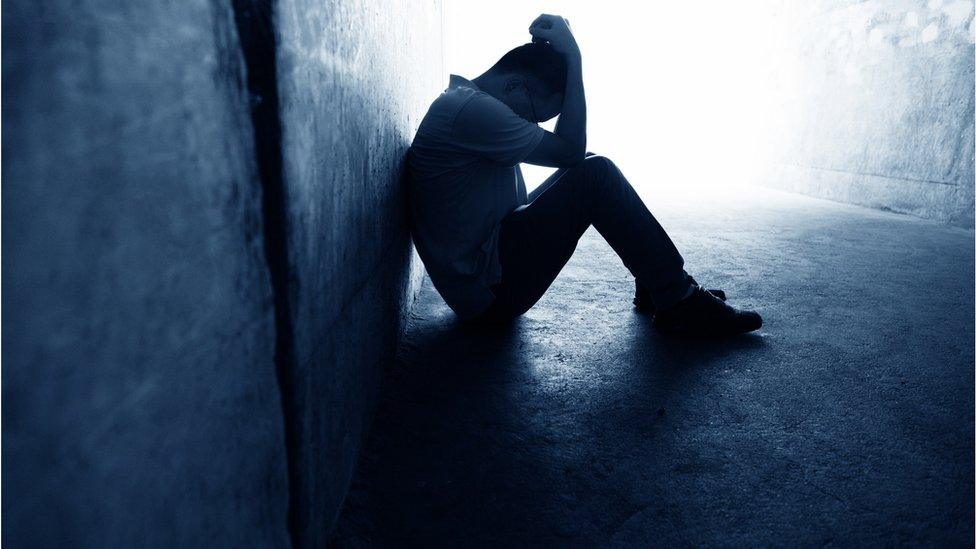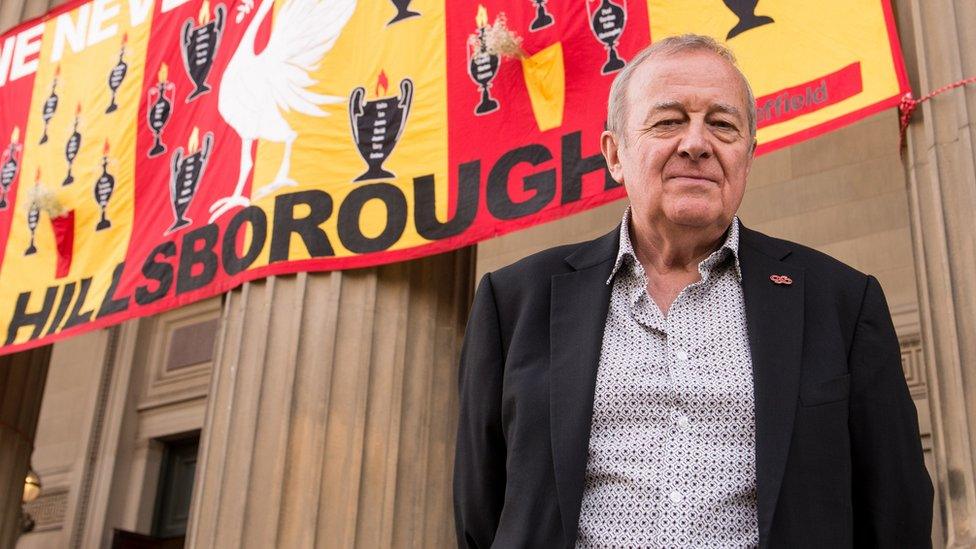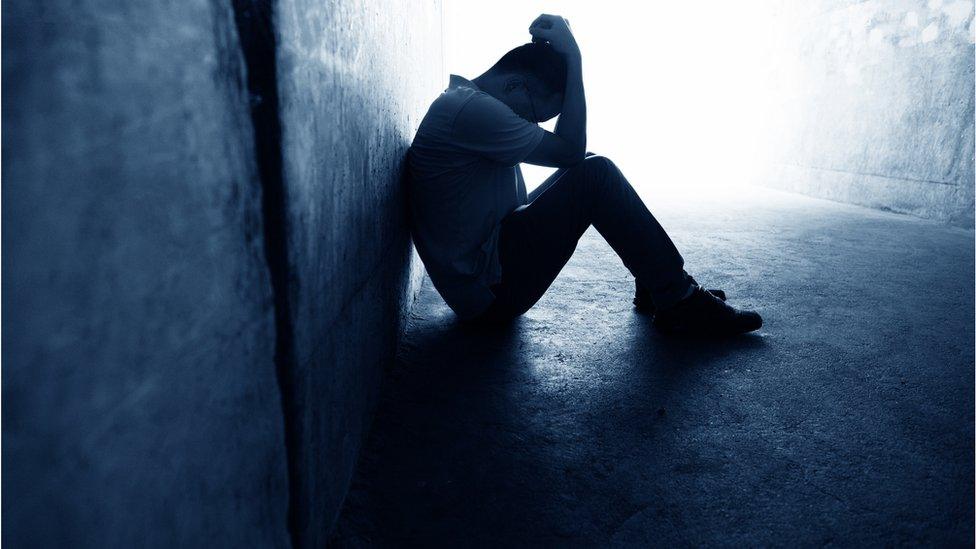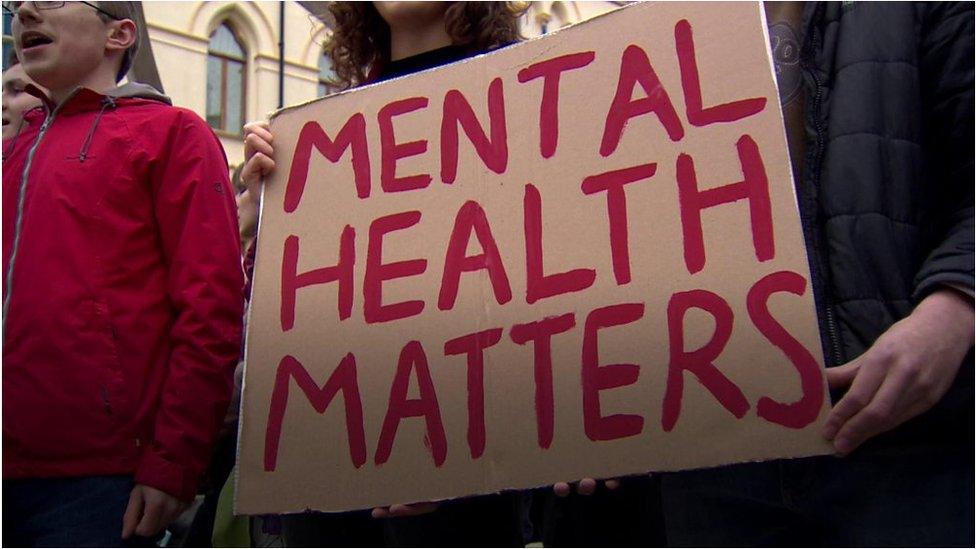Suicide prevention 'top priority', health minister
- Published

Northern Ireland has the highest suicide rate in the UK
Health Minister Robin Swann has said suicide prevention is a top priority for him and his department.
Snow Patrol singer Gary Lightbody is one of dozens of high-profile figures to sign a letter calling for Stormont to declare a public health emergency.
The 43-year-old has previously spoken about his own battles with depression and how seeking help was key.
The letter calls for spending on mental health to be doubled as a first step in addressing NI's suicide rate.
Mr Swann said those signing the letter were right to highlight suicide as one of the biggest challenges facing society and that "urgent action is needed".
'First hand'
"I've known people that have taken their own lives," Lightbody told BBC News NI.
"Friends, family and indeed myself have struggled with mental health problems. I avoided doing anything about it until I was nearly 40.
"I know first hand how debilitating it can be."
The singer has previously spoken about his own battles with depression
Northern Ireland has the highest suicide rate in the UK, with five people dying each week, and since Christmas there have been at least five suicides reported in north Belfast alone.
The idea for the open letter to health minister Robin Swann, published in Tuesday's Irish News and Belfast Telegraph, came from boxer Michael Conlan, who said recent deaths had really affected him.
'It started to get me down'
"It's been something I've known about for many years now growing up, especially in west Belfast," the Belfast fighter said.
"I was involved in fundraising for a kid, a young boxer, who had died by suicide.
"The more I thought about it, the more I started to hear about other people, and how often it was happening and it really started to get me down.
"I decided I want to do something about this because no matter what I do in my life, in sport, it's not going to matter in the bigger scheme of things."
"It's very, very scary the kind of things that can happen if these things aren't implemented now."
The featherweight star contacted PPR - the Participation and the Practice of Rights project -, external and with their guidance decided to write to the government demanding action.
In September 2019, the Protect Life 2 suicide prevention strategy laid out plans to reduce Northern Ireland's suicide rate by 10% in the next five years but the open letter is asking for a bigger commitment.
It calls for:
Funding for mental health charities to be doubled
A maximum waiting time of four weeks to see a mental health professional
The recognition of poverty and inequality as a risk factor, with appropriate action and resources allocated.
"It's something he (Robin Swann) can do instantly with a click of his fingers," says Conlan.
Mr Swann said he was placing top priority on the full implementation of the Protect Life 2 strategy and he intended to convene a meeting of the cross-departmental ministerial co-ordination group on suicide prevention as soon as possible.
'A collective trauma'
Lightbody, who is at pains to point out he is no expert in the field and relies on those who are, added: "When Michael got in touch about his great letter to the health minister I had no hesitation in signing.
"Northern Ireland has the highest rate of suicide and mental health problems in the UK, 25% higher than England for example, and we spend only half of what England spends on the problem per capita.
"We have all the same reasons for mental health issues that the rest of the UK has (social media, work stresses, family stresses, bullying, etc) plus one very significant unique issue - the Troubles.
"That is a collective trauma that we've been through that effects not only the generations that went through it, but even the new generations that never directly experienced it.
"That trauma is, tragically, in our DNA."

Suicide statistics
Three times as many people die by suicide in Northern Ireland each year than are killed in road traffic collisions
A total of 219,000 people have been directly affected by suicide since 2005
More than 70% of people who die by suicide are not known to mental health services
10% of 15-16 year olds have self-harmed at some stage
In 1970, 73 people took their own lives in Northern Ireland, according to the Northern Ireland Statistics and Research Agency
In 2013, there were more than 300 deaths - and that figure has remained largely the same since


Phil Scraton carried out research into the Hillsborough disaster, which led to the deaths of 96 football fans
Phil Scraton, head of research for the Hillsborough Independent Panel and Professor Emeritus in the School of Law at Queen's University, also signed the letter arguing for a wide-ranging debate regarding those who take their own lives.
"My work in prisons, in other forms of custody and in communities consistently demonstrates the complex, often multiple and always profoundly personal, issues that contextualise individuals' decisions to end their lives," he said.
"This campaign offers the potential for an informed dialogue focused on developing effective support services within our communities, schools, workplaces and healthcare agencies.
"This would enable early identification and effective intervention that could provide people with the help and care they require; without stigma and without shame. There is no 'them' and 'us' - only 'us'."
He states while the legacy of the conflict cannot be ignored, high levels of poverty, social exclusion and disadvantage must be central to our understanding of the current context.
"It is vital that the assembly commissions a cross-disciplinary, independent panel to pull together all available research and community-based evidence, particularly the work of non-statutory agencies, to lay the foundations for a coherent inter-agency strategy for intervention," he added.

Need to talk?
If you are in the UK, you can call the Samaritans on 116123 or Lifeline on 0808 808 8000.
For support and more information on emotional distress, click here.

- Published10 September 2019

- Published6 January 2020

- Published4 January 2020
